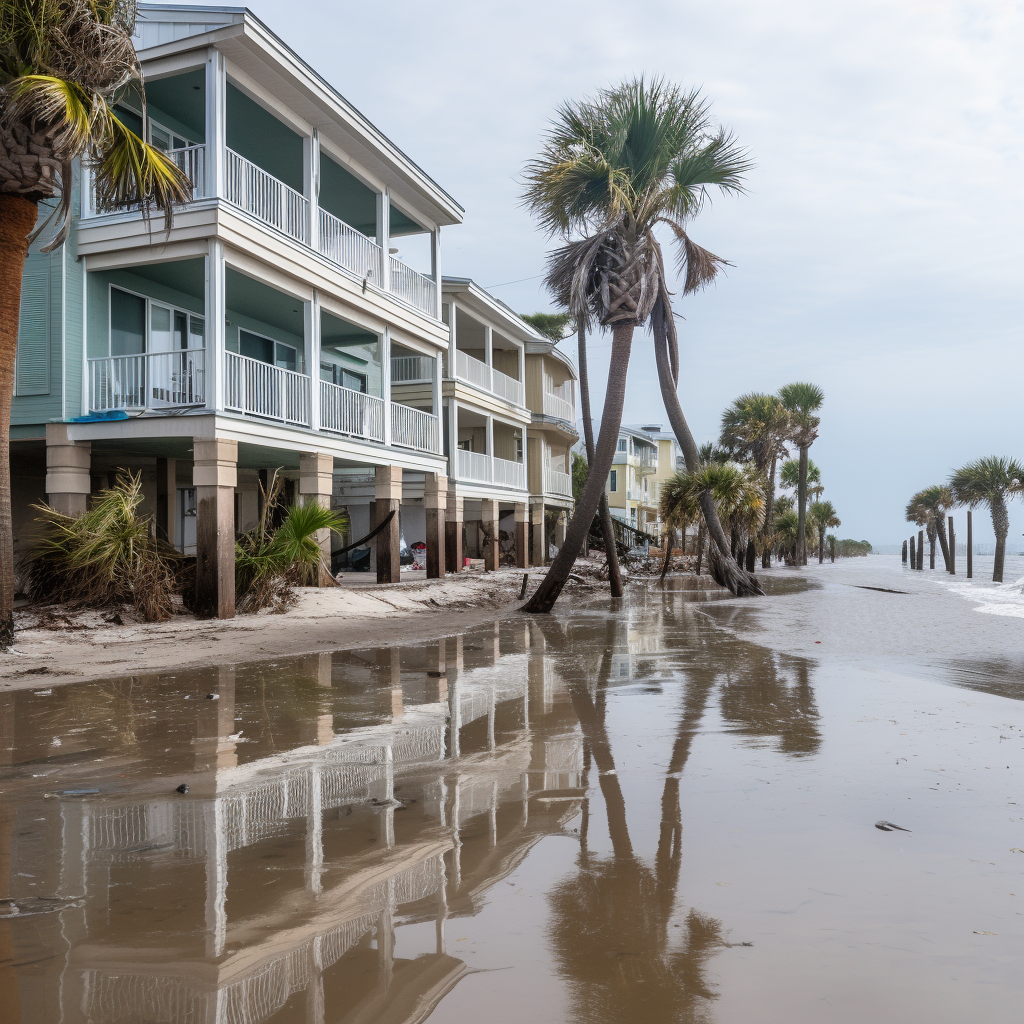Investment banks and hedge funds, traditionally known for their strategic financial maneuvers, are now venturing into a new asset class: land that is currently above sea level but is predicted to become oceanfront property due to rising sea levels.
The science is unequivocal: sea levels are on the rise. This data has prompted investment banks and hedge funds to seize this opportunity by acquiring large parcels of land that are currently above sea level but are projected to become oceanfront property in the future. This is a long-term investment strategy, betting on the conversion of these properties into highly sought-after and profitable oceanfront real estate.
Interestingly, these investment strategies are closely linked with the regulation of hydrocarbons. Hydrocarbons, which include oil and gas, are significant contributors to global warming and, consequently, rising sea levels. Investment banks, which often hold substantial stakes in the oil and gas industry, may indirectly benefit from the lack of stringent regulation of hydrocarbons. The combustion of fossil fuels contributes to global warming, leading to the melting of ice caps and rising sea levels. This, in turn, enhances the value of their investments in future oceanfront properties.
This trend is particularly evident in states like Florida, California, Louisiana, Texas, and South Carolina. In Florida, investment firms are acquiring land in anticipation of its value appreciating over time. Similarly, in California, a group backed by a cohort of Silicon Valley investors has discreetly bought a significant amount of agricultural and vacant land. Their objective is to construct a utopian new town that will provide its residents with reliable public transportation and urban living, all of which would operate using clean energy.
Louisiana is also attracting interest from investors. The state is home to nearly five million people with a median household income of $53,000 annually. The population has been steadily growing, ranking in the top five fastest-growing states in the nation between 2020 and 2021. Economically, Louisiana appears strong with an unemployment rate of 3.4% in early 2022 and over 16,000 jobs added in July 2022 alone.
In Texas, a company specializes in buying and selling land in primary residential, secondary recreational, and investment markets. Their experienced sales and marketing teams, financial resources, and reputation with local and state regulatory agencies have earned them the trust needed to be successful in today’s market.
South Carolina is also a popular market for real estate investors looking to profit from the state’s rapid appreciation rates and strengthening economy. The state is home to nearly five million people with a median household income of $53,000 annually. The population has been steadily growing, ranking in the top five fastest-growing states in the nation between 2020 and 2021.
Investment banks are making a calculated gamble on the future of our planet. They are investing in properties that are expected to become oceanfront due to rising sea levels, while also profiting from industries that contribute to these very changes. As the saying goes, “A rising tide lifts all boats,” but in this case, it might be more accurate to say, “A rising tide lifts all investments.”
Since 2010, several hedge funds and investment banks have made significant investments in real estate. Some of the notable ones include:
- Bridgewater Associates with assets under management (AUM) of $124,317,200,000
- Renaissance Technologies with AUM of $106,026,795,439
- AQR Capital Management with AUM of $94,523,700,000
- Two Sigma with AUM of $67,471,220,893
- Millennium Management with AUM of $57,670,000,000
- Citadel with AUM of $51,573,787,000
- Tiger Global Management with AUM of $51,000,000,000
- D.E. Shaw with AUM of $45,772,700,000
- Coatue Management with AUM of $42,338,946,229
- Davidson Kempner with AUM of $40,800,000,000





